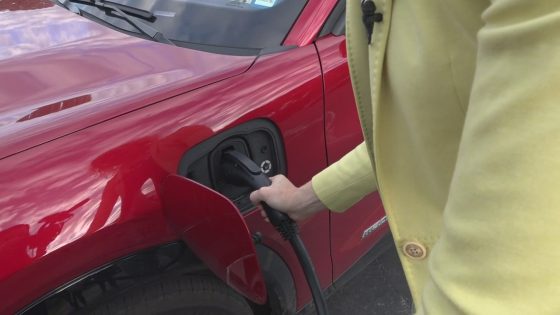The House voted to block California’s ambitious electric vehicle mandate, which aimed to eliminate fossil fuel emissions from all medium and heavy-duty vehicles by 2035. This decision could jeopardize New York State’s similar initiative, which also seeks to ban gas-powered vehicle sales by the same year.
- House blocks California's fossil fuel vehicle rules
- New York's EV mandate faces uncertainty
- Rep. Langworthy supports House vote outcome
- Concerns over economic impact on dealerships
- New York offers EV purchase incentives
- Governor Hochul emphasizes electric vehicle adoption
U.S. Rep Nick Langworthy expressed approval of the House’s decision, stating that it protects consumers and dealerships from the burdens of forced electric vehicle adoption. He emphasized the potential negative economic impact on New York’s automotive industry, especially for dealerships left with unsold electric vehicles.
As the debate continues, the implications of this ruling could resonate across the nation, raising questions about the future of electric vehicle policies. Will this decision shift the momentum away from clean energy initiatives?
This ruling raises critical questions about the balance between environmental goals and economic realities. How will states adapt to this federal intervention, and what does it mean for the future of electric vehicles in the U.S.?
- California’s rules aimed for zero emissions by 2035.
- New York’s EV mandate is now at risk.
- Potential economic fallout for dealerships and workers.
- Incentives for electric vehicle purchases remain available in New York.
As discussions unfold, stakeholders must advocate for balanced solutions that support both environmental sustainability and economic growth. Will the Senate uphold or overturn this decision?































